I went to a home on Saturday where they were suffering from too much heat. Upon inspection, the glass turned out to be double glazed units, around 15 years old, imported from Canada. This made me look a lot closer and one unit in particular showed signs of seal failure.
Seal failure is when air leaks into the space between the two panes of glass. This one unit did not have the silver spacers with the little air holes, but just black silicon seals. Normally, the holes hide a desiccant which absorbs moisture and the reason behind this is to absorb any moisture that is either present at the time of manufacture or leaks over time in a substandard unit. Once the desiccant is saturated, your glass starts to develop moisture and eventually condensation.
The glazing industry tends to invalidate any claim where window film has been installed. In the USA, window film manufacturers offer to take over the Insulated Glass Unit (IGU) warranties to reassure the customers that tinting the glass will not become a risk to their units.
Normally, a well constructed IGU with a well chosen film will not fail within the warranty period. What the film can do, is accentuate an existing flaw and speed up the rate of failure. In effect, it will highlight a defect in the IGU. It's not the film causing t he problem.
Anyway, in this case, the failure was obvious, before any window film was installed. I advised the owners to have the glass changed, before any tinting was getting done.
With an increasing sophistication in glass, it is vital to deal with someone who is well versed in this topic to avoid nasty surprises down the track.
Seal failure is when air leaks into the space between the two panes of glass. This one unit did not have the silver spacers with the little air holes, but just black silicon seals. Normally, the holes hide a desiccant which absorbs moisture and the reason behind this is to absorb any moisture that is either present at the time of manufacture or leaks over time in a substandard unit. Once the desiccant is saturated, your glass starts to develop moisture and eventually condensation.
The glazing industry tends to invalidate any claim where window film has been installed. In the USA, window film manufacturers offer to take over the Insulated Glass Unit (IGU) warranties to reassure the customers that tinting the glass will not become a risk to their units.
Normally, a well constructed IGU with a well chosen film will not fail within the warranty period. What the film can do, is accentuate an existing flaw and speed up the rate of failure. In effect, it will highlight a defect in the IGU. It's not the film causing t he problem.
Anyway, in this case, the failure was obvious, before any window film was installed. I advised the owners to have the glass changed, before any tinting was getting done.
With an increasing sophistication in glass, it is vital to deal with someone who is well versed in this topic to avoid nasty surprises down the track.

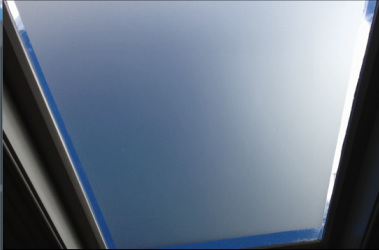
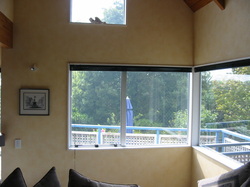
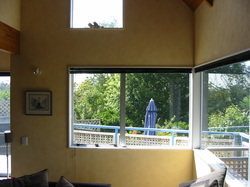
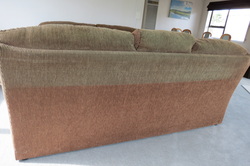
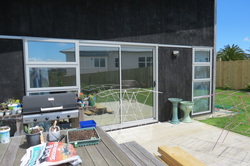
 RSS Feed
RSS Feed
